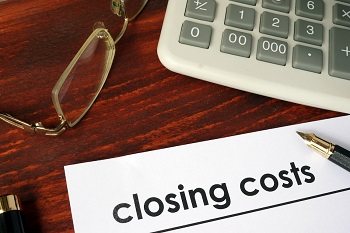What Is Closing If You Are a Buyer?

What is closing if you are a buyer? If you’re a typical buyer, you looked at houses online and in-person with your realtor. You found the house for you and your family in the perfect neighborhood and at your price. You made an offer and the seller accepted. Now it is time for the closing.
According to Money Under 30, “A closing agent, a neutral third party, such as a title company or a real estate attorney, handles the closing. At a closing, certain things take place: Transferring the home’s title (and the keys) from the seller to the buyer, and the proceeds of the sale distributed to the seller.” If the buyers finance the home, the buyers sign the mortgage note. Finally, the buyer and/or seller pay other fees such as real estate commissions, title insurance, and pro-rated property taxes.
What Is Closing If You Are a Buyer?
If you are the buyer at closing, you need to pull out your checkbook.
- The Downpayment – For example, if the purchase price is $200,000, and you’re required to make a 10 percent down payment, you’ll have to pay $20,000.
- Closing Costs – With a $200,000 mortgage, you’ll need to come up with between $4,000 and $6,000 in addition to your down payment. Closing costs include origination fees, points, taxes, insurance, and homeowner’s association fees, etc. You will receive a document known as the HUD-1 Settlement Statement before closing. It summarizes the details of the financial transaction. Be sure to compare that statement with the fees at closing.
- Prepaid Expenses – Depending on where you live, and the frequency of real estate tax collections, the lender may have you deposit between two and 12 months of real estate taxes in escrow. If the taxes on the house are $250 per month, and a six-month escrow is required, the lender will require $1,500 at closing.
- Utility Adjustments – Utility adjustments can include a large number of charges. They represent utility costs paid by the property seller in advance, like a full tank of propane.
- Cash Reserves – The lender may require you have sufficient liquid assets to meet at least the first two months of mortgage payments.
If you are buying a home for $200,000 and need a 10 percent down payment, the total amount of cash that you may need to provide or at least show looks something like this:
As you can see, you could need more than 1.5 times your down payment to close on a house successfully.
| Down payment | 10% of $200,000 | $20,000 | |||
| Closing costs | 2.5% of $180,000 | $4,500 | |||
| Prepaid expenses | 2% of $180,000 | $3,600 | |||
| Utility adjustments | Estimated | $500 | |||
| Cash reserves | $1,200 mortgage payment x 2 | $2,400 | |||
| Total cash required | $31,000 |
Ask for FREE information about How to Sell Your House Fast.
Terra Firma Property Solutions, LLC, is a professional, full-service real estate solutions firm.
We buy and sell properties throughout the greater Kansas City area. We specialize in buying distressed homes, then renovating and reselling them to home buyers and landlords. Terra Firma Property Solutions: excited to be part of the economic rejuvenation of Kansas City and its surrounding areas.
Call us today at (816) 866.0566
